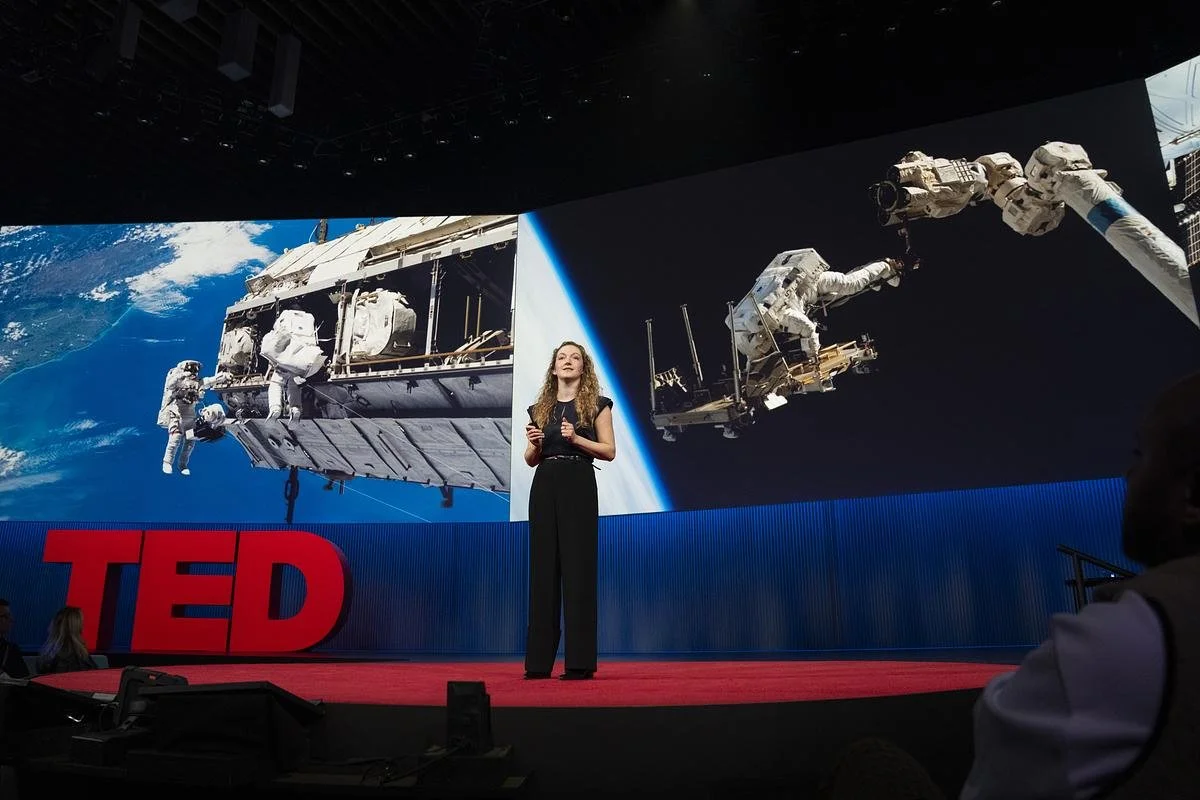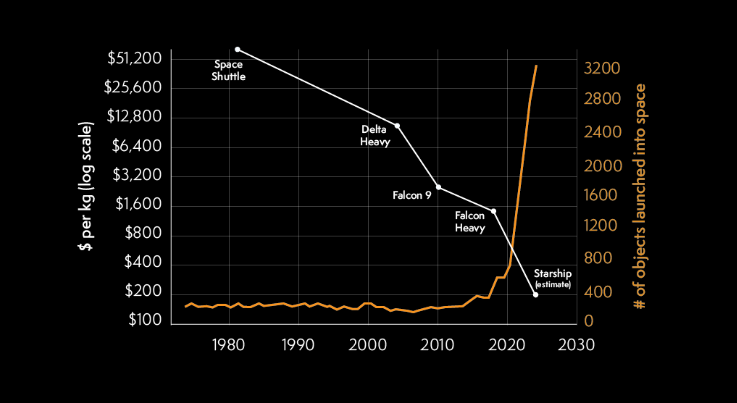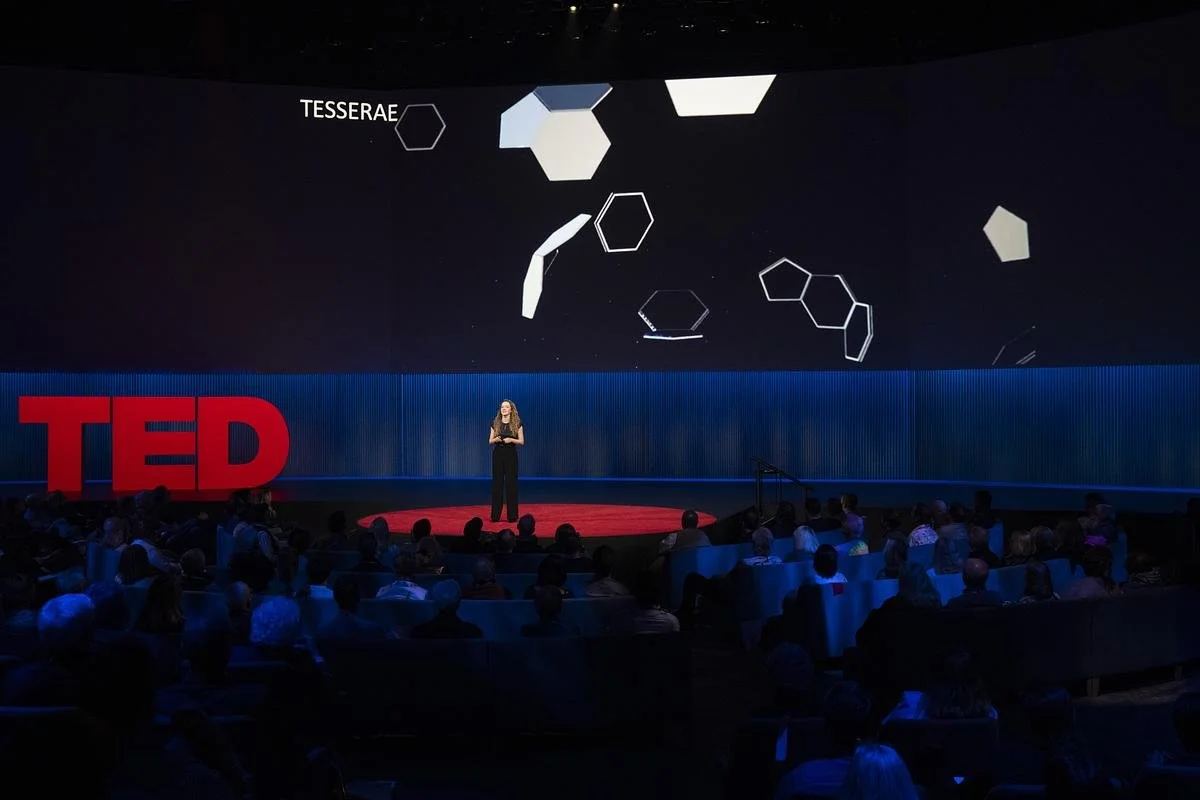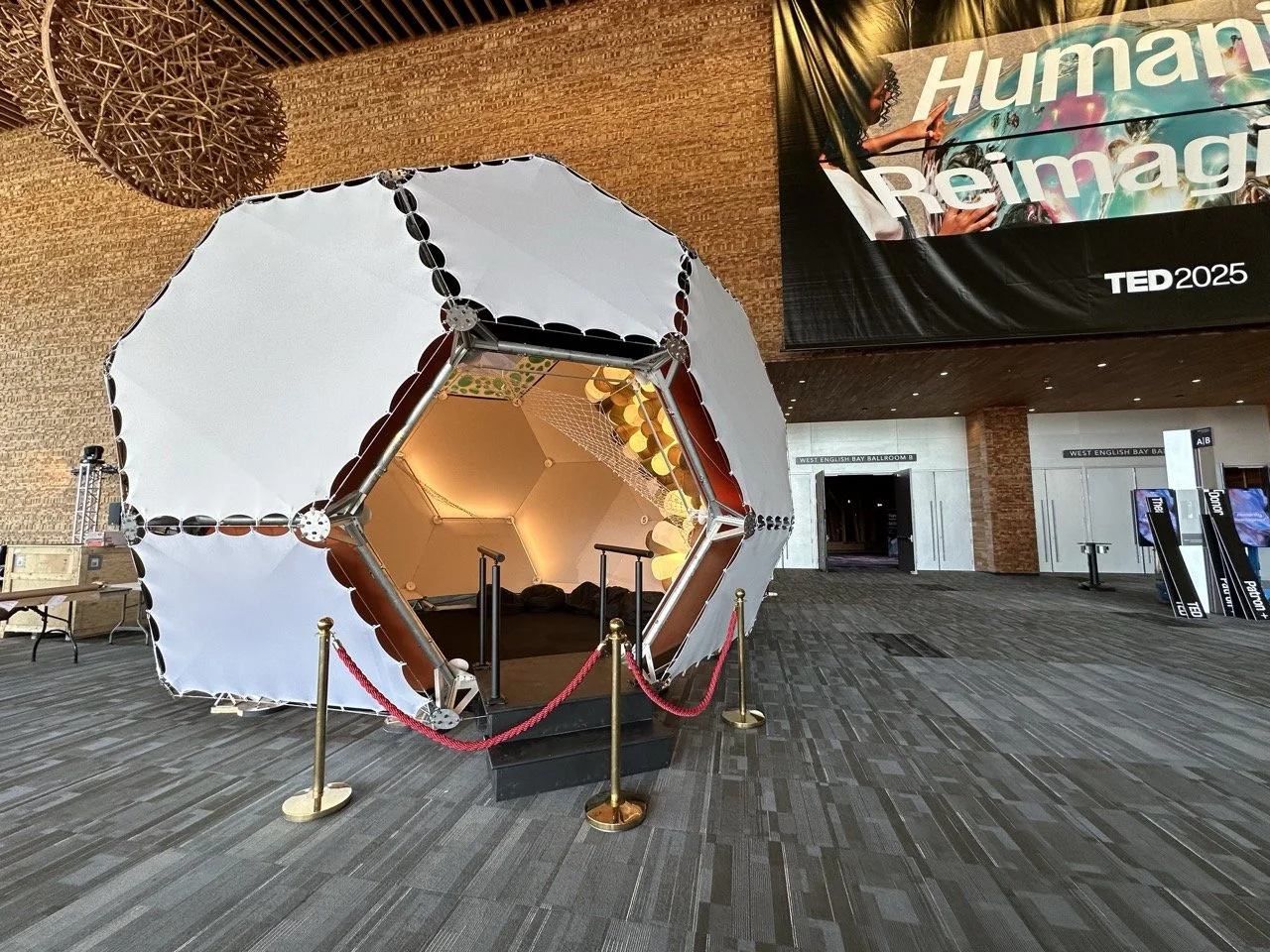Ariel Ekblaw’s TED Talk: Space infrastructure for the public good
From orbiting bio labs to space-based solar power, Aurelia is on a mission to use space-construction technologies, like TESSERAE, to create a better future for humanity.
Ariel Eklaw on stage at TED 2025 in Vancouver BC, Canada. Photography by Jasmina Tomic.
This April, founder and CEO Ariel Ekblaw delivered a mainstage talk at TED 2025. She lays out a vision for building infrastructure in space for the public good — using the unique affordances of space to benefit life on Earth.
The talk, "How to build in space — for life on Earth"," is published today, and we invite you to watch it here:
Space exploration has already given us novel technologies and radical innovations, from modern computing rooted in the Apollo program to Lasik surgery, developed from the same tech that led to the Space Shuttle orbiter rendezvous and docking guidance system. Now, with the cost of launching payloads dramatically lowered and becoming ever more accessible to researchers and companies of all kinds, we face an exciting new era of development and participation in space. The bottleneck isn’t rockets anymore, it’s real estate. What we need now is expanded orbital infrastructure to support a new generation of space breakthroughs for the benefit of life on Earth.
Through our self-assembling TESSERAE technology and our growing network of industry partners, Aurelia is paving the way toward an expansive in-space economy and an aspirational future for humanity.
Orbiting biolabs: In microgravity, protein crystallization behaves differently, certain tissues grow faster, and we can even develop new pharmaceutical drugs in ways that aren't possible on Earth. From testing new drugs to treat cancer and Alzheimer’s on zero-g organoids, to manufacturing artificial retinas that cure macular degeneration – life-changing therapies will be researched, developed, and produced in custom-built labs in LEO and brought back down to Earth.
Space-based solar power: We can use TESSERAE technology to help start-up energy companies self-assemble massive, in-space installations to capture unlimited, unfiltered energy and beam it anywhere on Earth, any time, on-demand.
Off-worlding: Looking to the longer term, we can build the orbital infrastructure and technology to take mining, refinement and processing, and other heavy industry off of Earth A long beloved idea in science fiction, “offworlding” these processes would help us protect Earth as a garden planet for generations to come.
Photography by Jasmina Tomic
The Aurelia team also had the opportunity to bring the TESSERAE Space Habitat Pavilion to TED. The 24-foot dome was built on The Loop, near the entrance to the auditorium at the Vancouver Convention Center, and hosted hundreds of new visitors over the course of the weeklong TED Conference.
As always, it was a tremendous team effort to bring the Pavilion to a new location, set it up and guide visitors through their explorations. The Pavilion has now been on exhibit in three cities – Boston, Seattle, and Vancouver – and has inspired people from all over the world to imagine themselves in space.
Looking Forward
The business case for space is here. Biotech companies are investing in zero-g research. Governments are funding space-based solar power. By the end of this decade, we will have the first modular space station built autonomously, unlocking scalable infrastructure for the trillion-dollar space industry. At Aurelia, we want to harness this infrastructure for the profound benefit of life on Earth.






